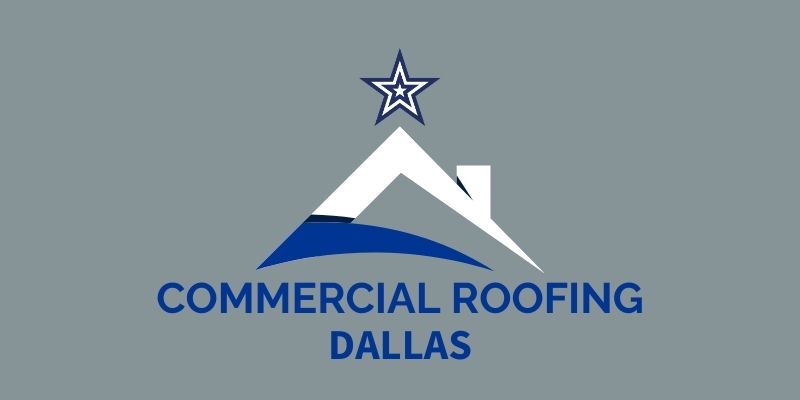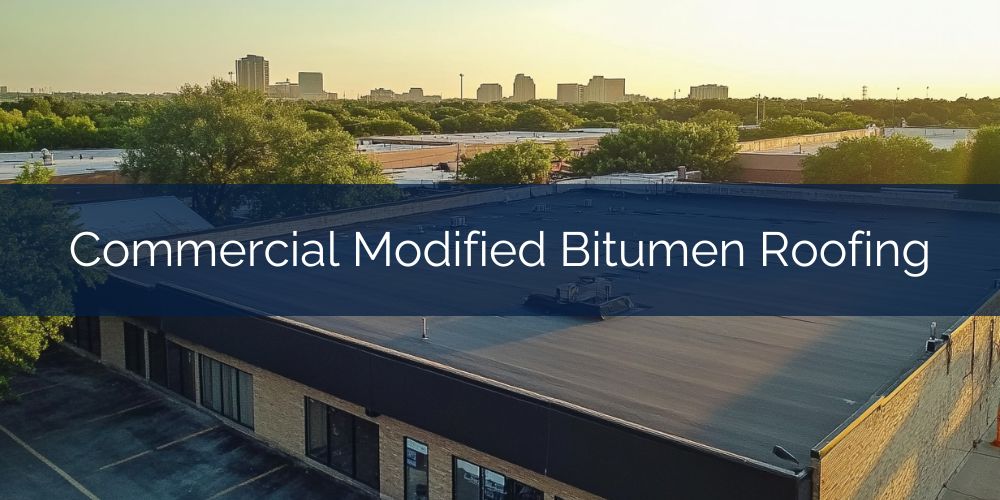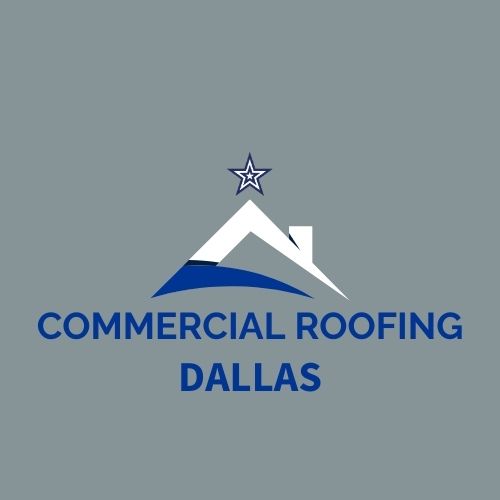Commercial modified bitumen roofing is a durable and flexible roofing solution used primarily on commercial buildings with flat or low-slope roofs. This roofing system combines asphalt with polymerized rubber or plastic, enhancing its strength and waterproofing capabilities. Known for its resilience against extreme weather conditions and temperature fluctuations, modified bitumen is a preferred choice for long-term roof performance. It can be applied using a variety of methods, such as torch-applied, hot-mopped, or self-adhered, to suit diverse commercial roofing needs. Commercial Roofing Dallas provide commercial modified bitumen roofing services across the Dallas, Texas area.
What Is Commercial Modified Bitumen Roofing?
Commercial Modified Bitumen Roofing is a type of roofing system commonly used in commercial buildings, especially for flat or low-slope roofs. It is composed of asphalt that has been enhanced with polymer modifiers, which improves its performance attributes such as flexibility, strength, and weather resistance. This roofing system is designed to withstand diverse weather conditions, offering excellent protection against water intrusion and potential leaks. Various installation methods can be used, including torch-applied, self-adhesive, and cold-applied systems, catering to different requirements and environmental conditions. Modified Bitumen is preferred for its durability and ability to endure significant foot traffic, making it ideal for commercial applications. Its design also allows for easier repair and maintenance, prolonging the roof's lifespan.
In Dallas, Texas, commercial modified bitumen roofing is valued for its ability to withstand the city's hot summers and occasional severe weather conditions. Installation methods like torch-down are commonly used due to their quick application and strong bonding properties, necessary to endure the intense sun and potential for peak temperatures.
Have a question about an upcoming project?
What Are The Benefits Of Modified Bitumen Roofing In Dallas?
Modified bitumen roofing offers durability, weather resistance, and energy efficiency, making it ideal for Dallas's climate. Dallas experiences extreme temperature fluctuations and severe weather, making a strong and adaptable roofing system necessary. Modified bitumen is also easy to maintain and can be customized to fit various architectural requirements.
- Weather Resistance: Excels in withstanding Dallas's harsh weather, including storms and hail.
- Durability: Offers long-lasting protection with resistance to wear and tear.
- Energy Efficiency: Reflective surfaces help reduce energy costs by lowering cooling demands.
- Flexibility: Adapts well to temperature changes, preventing cracking and leaks.
- Low Maintenance: Requires minimal upkeep, saving time and resources over its lifespan.
1. Weather Resistance: Excels in withstanding Dallas's harsh weather, including storms and hail
Weather resistance refers to a roofing material's ability to endure and remain durable against adverse weather conditions such as storms and hail. In the unpredictable and often harsh weather of Dallas, modified bitumen roofing proves advantageous for commercial buildings due to its exceptional weather resistance. Its multi-layered composition and flexible nature enable it to absorb impacts without severe damage, ensuring reliability during intense storms and hail. Additionally, modified bitumen roofs are designed to shed water efficiently, reducing the risk of leaks and water-related damage. Routine maintenance further enhances their performance by addressing minor damages before they escalate. Opting for a modified bitumen roof helps protect commercial investments against the frequent severe weather challenges in Dallas.
2. Durability: Offers long-lasting protection with resistance to wear and tear.
Durability in commercial roofing refers to the ability of roofing materials to withstand environmental stresses and physical damage, ensuring the long-term performance and protection of the building. Durability is a key benefit of modified bitumen roofing in Dallas, as it is designed to confront the challenging climate conditions, including heavy rain, wind, and temperature fluctuations. This resilience ensures that the roof lasts longer without requiring frequent repairs or replacements, providing a reliable shield for commercial structures. Enhanced durability is achieved through multiple layers which reinforce the roofing's resistance to mechanical damage and weathering. By investing in a durable modified bitumen roof, building owners can reduce maintenance costs over time while maintaining a critical barrier against environmental elements. Efficient preventive measures, such as regular inspections and maintenance, can further enhance the roof’s durability, preventing minor issues from developing into significant concerns.
3. Energy Efficiency: Reflective surfaces help reduce energy costs by lowering cooling demands
Energy efficiency refers to the ability of a roofing material to reduce energy consumption by reflecting heat away, thereby lowering cooling demands. The energy efficiency provided by reflective surfaces is particularly beneficial for commercial buildings in Dallas, where cooling costs can soar due to high temperatures. By employing reflective roofing materials, businesses can significantly cut down on their air conditioning requirements, leading to noticeable energy savings. Opting for reflective roofing solutions not only reduces operational costs but also promotes sustainability by decreasing carbon emissions associated with energy consumption. Proper installation and maintenance of these reflective surfaces ensure their effectiveness in managing energy efficiency. Moreover, reflective surfaces contribute to mitigating the urban heat island effect, making them a viable option for commercial settings in dense urban landscapes like Dallas.
4. Flexibility: Adapts well to temperature changes, preventing cracking and leaks.
Flexibility in roofing materials refers to their ability to expand and contract with temperature variations, reducing the risk of cracks or leaks that can jeopardize the roof's integrity. Modified bitumen roofing demonstrates superior flexibility, which is crucial for areas like Dallas that experience significant temperature fluctuations. This adaptability minimizes the potential for structural failures, ensuring long-term waterproofing and durability, thus representing a key advantage of this roofing type in such climates. Given the extreme temperature swings common in Dallas, roofs must maintain their resilience and flexibility to prevent damage. Modified bitumen roofing systems benefit from engineered polymers that enhance their pliability, allowing them to withstand high heat and chilling cold without sacrificing performance. Regular inspections and maintenance further bolster their ability to manage temperature stresses, maintaining a leak-proof surface and extending their service life.
5. Low Maintenance: Requires minimal upkeep, saving time and resources over its lifespan
Low maintenance in commercial roofing refers to roofing systems that demand infrequent repairs and maintenance, reducing operational costs and diminishing time invested in upkeep. Modified bitumen roofing offers a low-maintenance solution for commercial properties in Dallas due to its durability and resilience against harsh weather conditions. With less frequent need for repairs, it provides significant savings in both time and resources over its lifecycle. These roofing systems are engineered to endure extreme temperature variations and inclement weather without frequent intervention, thus beneficial for businesses looking to optimize maintenance budgets. Furthermore, due to their robust construction, periodic checks and basic cleaning are often sufficient to keep them in peak condition, ensuring long-term performance without the hassle of extensive routine care.
How Does Modified Bitumen Roofing Perform In Dallas's Climate?
Modified bitumen roofing performs well in Dallas's climate due to its durability and adaptability. Its composition allows it to withstand Dallas's hot summers and occasional severe storms. Additionally, it provides good insulation, helping maintain energy efficiency in both residential and commercial buildings.
- Weather Resistance: Effectively withstands Dallas’s hot summers and occasional severe storms.
- Durability: Holds up well against fluctuating temperatures from season to season.
- Energy Efficiency: Provides good insulation to reduce energy consumption in extreme weather.
- UV Protection: Contains layers that protect against high UV exposure typical in Dallas.
- Flexibility: Adaptable to temperature changes, preventing cracks and leaks.
1. Weather Resistance: Effectively withstands Dallas’s hot summers and occasional severe storms
Weather resistance refers to the ability of a roofing material to endure extreme heat and severe weather conditions without degrading. Modified bitumen roofing's strong weather resistance makes it an optimal choice for Dallas's challenging climate, where roofs must handle high temperatures and intense storm activity. Such durability ensures that the roofing maintains structural integrity, providing reliable protection against leaks and weather-related damage. To enhance this weather resistance, applying reflective coatings on modified bitumen roofing can minimize heat absorption, which reduces thermal stress and prolongs the lifespan of the roof. The reinforcement layers in modified bitumen also enhance puncture resistance during thunderstorms, offering additional peace of mind for commercial building owners. Regular maintenance further guarantees sustained performance, safeguarding investments against harsh environmental factors.
2. Durability: Holds up well against fluctuating temperatures from season to season
Durability refers to the ability of commercial roofing materials to withstand seasonal temperature variations without compromising their structural integrity. In Dallas's climate, modified bitumen roofing excels in durability due to its robust composition that resists the stresses caused by fluctuating temperatures. The capacity to maintain performance through temperature changes ensures that the roofing system remains reliable and effective season after season, accommodating both cold winters and hot summers. Using modified bitumen roofing in areas with significant temperature fluctuations also reduces the risk of thermal expansion and contraction, which can lead to cracking in less resilient materials. By preserving the roofing system's structural integrity, businesses can avoid costly repairs while ensuring consistent protection of their assets. Furthermore, enhanced durability contributes to the extended lifespan of the roofing system, reducing the need for frequent replacements and minimizing environmental impact.
3. Energy Efficiency: Provides good insulation to reduce energy consumption in extreme weather
Energy efficiency in commercial roofing refers to the roofing system's ability to minimize energy consumption by providing superior insulation, thereby reducing the need for heating and cooling in extreme weather conditions. The high energy efficiency of modified bitumen roofing is particularly advantageous for commercial buildings in Dallas's climate, known for its temperature extremes. By effectively insulating the building, modified bitumen helps maintain a stable indoor environment, significantly reducing heating and cooling costs, especially during blistering summers and chilly winters. Additionally, the excellent insulation properties of modified bitumen contribute to prolonged roof life by reducing thermal expansion and contraction cycles. This efficiency not only delivers cost savings but also supports sustainability goals by cutting down on carbon emissions associated with excessive energy use. Building owners benefit from a robust, high-performing roofing system that keeps interior conditions comfortable, irrespective of external weather conditions.
4. UV Protection: Contains layers that protect against high UV exposure typical in Dallas
UV protection in roofing involves the use of specialized materials or coatings that minimize damage caused by exposure to ultraviolet radiation, thereby extending the lifespan of the roof. In Dallas’s climate, modified bitumen roofing must address the pervasive issue of high UV exposure, which can cause significant wear. The UV-resistant layers in these systems help maintain the roof’s durability and performance by reducing the effects of constant sunlight. This feature is critical in ensuring the roof remains waterproof and structurally sound despite prolonged sun exposure. To further safeguard against Dallas’s intense UV radiation, additional coatings or reflective surfacing can be applied to the modified bitumen roof. These measures enhance the roof’s ability to reflect sunlight, lowering surface temperatures and slowing deterioration. Regular roof inspections and maintenance also play a vital role in identifying any potential damage early, thus ensuring the roof’s enduring functionality and efficiency.
5. Flexibility: Adaptable to temperature changes, preventing cracks and leaks.
Flexibility is the ability of a roofing material to withstand temperature fluctuations without cracking or developing leaks, ensuring long-term durability and protection. The flexible nature of modified bitumen roofing is particularly advantageous in Dallas's climate, which experiences significant temperature variations throughout the year. This adaptability helps prevent cracking and leaks that could otherwise occur, ensuring the roof remains intact and performs effectively in both the hot summer months and cooler winter periods. This flexibility reduces maintenance costs and extends the lifespan of the roof by minimizing weather-related wear and tear. Additionally, modified bitumen's ability to maintain its integrity in varying temperatures makes it a reliable option for commercial buildings in Dallas, where external factors like climate can impact overall system performance. Regular inspections can further enhance its durability by addressing any potential issues before they compromise the roof's effectiveness.
What Are Common Issues With Modified Bitumen Roofs In Dallas?
Common issues with modified bitumen roofs in Dallas include weather-related wear and tear, thermal expansion, and potential for leaks. The hot climate, occasional hailstorms, and large temperature fluctuations can accelerate the aging of roofing materials. Homeowners should regularly inspect their roofs for damage and maintain them to extend their lifespan.
- Thermal Expansion: Extreme Texas heat causes frequent expansion and contraction.
- UV Damage: Prolonged sun exposure leads to material degradation and brittleness.
- Water Pooling: Inefficient drainage causes standing water, risking leaks and structural damage.
- Hail Damage: Severe storms can puncture or crack the roofing surface.
- Poor Installation: Incorrect installation increases risks of leaks and roof failure.
1. Thermal Expansion: Extreme Texas heat causes frequent expansion and contraction
Thermal expansion refers to the phenomenon where roofing materials expand and contract due to temperature fluctuations, potentially leading to damage over time. The intense Texas heat is a critical factor for modified bitumen roofs in Dallas, as the constant cycle of expansion and contraction can weaken seams and cause cracks. These changes put stress on the roofing membrane, increasing the likelihood of leaks and structural damage as the material ages. Addressing thermal expansion, therefore, becomes essential for maintaining the roof's integrity and performance. To mitigate the effects of thermal expansion, it's advisable to use high-quality, flexible materials for your modified bitumen roof that can adapt to temperature changes without compromising structural integrity. Regular inspections will help in identifying early signs of stress or wear, enabling timely repairs or adjustments before severe damage occurs. Incorporating reflective coatings may also help to manage the temperature fluctuations by reducing heat absorption, thereby lessening the impact of extreme temperature shifts.
2. UV Damage: Prolonged sun exposure leads to material degradation and brittleness.
UV damage refers to the harmful effects of ultraviolet radiation that result in the deterioration and increased brittleness of roofing materials over time. Modified bitumen roofs are particularly vulnerable to UV damage due to their asphalt composition, which, when exposed to prolonged sunlight, undergoes oxidation. This process reduces the material's flexibility and water resistance, making it more prone to cracking and granule loss, and ultimately compromising the roof's integrity and longevity. To combat UV damage, applying a reflective and UV-resistant coating, such as acrylic or silicone, can significantly reduce heat absorption and slow the deterioration of the roofing material. Regular maintenance and inspections are crucial to detect early signs of damage, ensuring timely repairs that maintain the roof's performance. By taking proactive measures, building owners can extend the lifespan of their modified bitumen roofs and preserve their investment.
3. Water Pooling: Inefficient drainage causes standing water, risking leaks and structural damage.
Water pooling on a commercial roof is the accumulation of water due to inadequate drainage, which can lead to roof leaks and eventual structural deterioration. Water pooling is a critical issue for modified bitumen roofs in Dallas, where heavy rains can frequently occur, overwhelming poorly designed or maintained drainage systems. Standing water exacerbates roof stress, causing seams or joints to weaken, leading to water ingress that damages the underlying structure. To combat this issue, regular inspections and proper maintenance of drainage systems are essential to ensure efficient water flow and prevent ponding on the roof's surface. Installing additional drainage solutions like scuppers or enhancing slopes can further mitigate risks associated with water pooling. Ensuring a proactive approach to water management on modified bitumen roofs ultimately enhances their longevity and performance.
4. Hail Damage: Severe storms can puncture or crack the roofing surface.
Hail damage occurs when large hailstones impact the roof, leading to dents, punctures, or cracks in the roofing material. Hail damage is a significant concern for modified bitumen roofs in Dallas due to the region's susceptibility to severe storms. Such impacts can compromise the roof's protective layers, leading to water infiltration and potentially costly repairs. To mitigate hail damage, installing protective barriers or impact-resistant roofing materials can be beneficial for modified bitumen systems. Regular inspections after storms allow for timely identification and repair of damaged areas, preventing further deterioration. Additionally, reinforcing vulnerable sections with additional layers can enhance the roof's resilience against hail impacts.
5. Poor Installation: Incorrect installation increases risks of leaks and roof failure.
Poor installation refers to the improper or flawed setup of a roofing system that can lead to vulnerabilities such as leaks and eventual roof failure. Poor installation is a critical issue for modified bitumen roofs in Dallas because improper methods or lack of expertise during installation can create weaknesses that result in leaks and structural problems. Such faults in the initial installation phase can exacerbate the effects of Dallas’s climate, where intense heat and occasional storms can exploit even minor roofing vulnerabilities. Ensuring that a modified bitumen roof is installed correctly by experienced professionals minimizes potential problems and extends the roof's service life. It is vital to adhere strictly to manufacturer guidelines and industry standards to prevent issues related to poor installation. Regular inspections and maintenance can detect and correct any installation flaws early on, further safeguarding the integrity of the roofing system.


